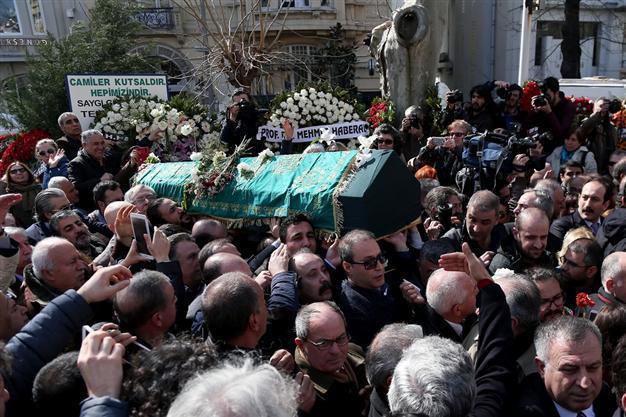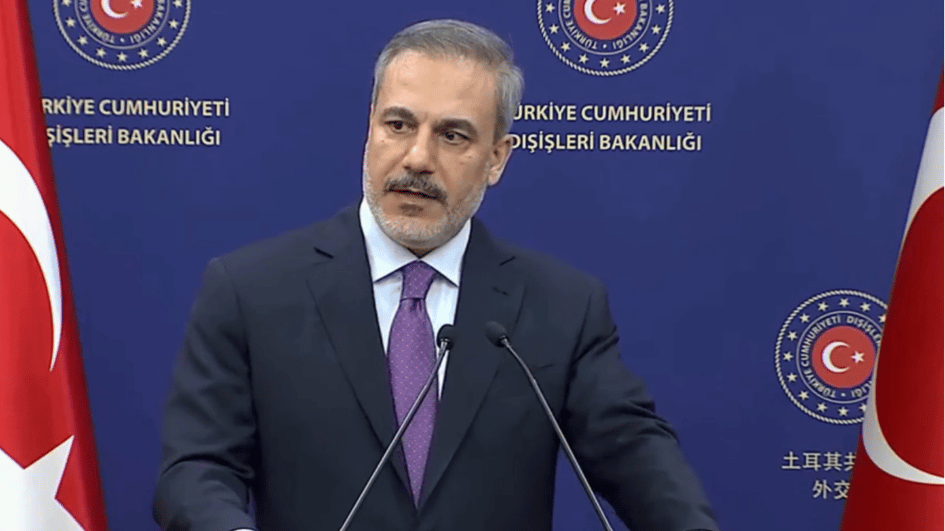Prominent writer Yaşar Kemal laid to rest
ISTANBUL

AA Photo
One of modern Turkey’s most celebrated literary figures, Yaşar Kemal, was laid to rest with a ceremony in Istanbul March 2, after he died on Feb. 28 aged 92.Following prayers at the Teşvikiye Mosque in Istanbul, Kemal was laid to rest in the city’s Zincirlikuyu Cemetery.
Kemal was buried next to his first wife, Tilda Kemal, with whom he was married for 50 years before her passing in 2001. Land from Kemal’s birthplace, Gökçedam, a village in the southern province of Osmaniye in the Çukurova region, known in antiquity as Cilicia, was scattered over his body while being buried.
Kemal’s wife, Ayşe Semiha Baban, received condolence messages from the participants of the funeral.
A large group of people attended the funeral including past and present top politicians, writers, artists, friends and family members. Those present included former president Abdullah Gül, Nobel laureate Orhan Pamuk, main opposition Republican People’s Party (CHP) head Kemal Kılıçdaroğlu and Peoples’ Democratic Party (HDP) Co-Chair Selahattin Demirtaş.
Gül said he was sorry for Kemal’s loss, “a great writer bearing all of Anatolia’s values,” adding that Kemal and Gül’s father were friends as they had worked in a factory together in the Central Anatolian province of Kayseri, Gül’s hometown.
Kılıçdaroğlu said Turkey had “learned epics, journalism, interviewing people, arts, love and peace” from Kemal.
Nobel laureate Pamuk told news website Radikal that he had first read Kemal in his high school years and was honored to be his friend in the following years, describing Kemal as his “master.”
Kemal, who had been hospitalized since Jan. 14 following respiratory problems, lung infection and heart arrhythmia, died at a hospital in Istanbul on Feb. 28.
Kemal, who wrote more than 20 novels and nearly 10 experimental works, besides short stories, is also famous for recreating Turkish as a literary language.
Receiving international acclaim for “İnce Memed” (Memed, My Hawk) which was first published in 1955, Kemal used a mythological hero – the eponymous “İnce Memed” (Slim Memed) – to criticize society and its values. In the novel, Memed runs away to the mountains due to the oppression of a local landowner.
A mourning ceremony was held at Istanbul’s Lütfi Kırdar Congress Center following the funeral, where artists, writers, family and friends of Kemal spoke about him or performed their art in his memory. World renowned Turkish pianist İdil Biret played a piece for Kemal’s eulogy.
Istanbul Foundation for Culture and Arts (İKSV) Board Chairman Bülent Eczacıbaşı expressed his deep sorrow for the loss of Kemal in a written statement, saying the “taste one can get from reading a Kemal novel was rarely found.”
Meanwhile, author Elif Şafak complained on Twitter that the government had declared a national day of mourning after Saudi King Abdullah died in January, but not for Kemal, Agence France-Presse reported.
Having both Turkish and Kurdish origins, Kemal was born in 1923 as Kemal Sadık Gökçeli in the southern province of Osmaniye in the Çukurova region.
Kemal first worked as letter-writer for illiterate citizens in small villages, then became a journalist and finally a novelist, always believing in “human beings and nature,” defining his art as “being at the proletariat’s service.”
In 1950, he was detained on charges of disseminating communist propaganda, the first of several arrests during his lifetime, but he was later acquitted.
It was in Istanbul that his left-wing political activism flourished, becoming a member of the Turkish Labor Party (TİP) and setting up a Marxist magazine, but he was frequently the target of official investigations over his articles.
Kemal’s death came on the same day of a turning point in the Kurdish peace process, when jailed leader of the outlawed Kurdistan Workers’ Party (PKK) called on supporters to lay down arms following decades of conflict, which claimed thousands of lives.
“He always said he would see peace [in the country] and I think he felt it,” state-run Anadolu Agency reported Kemal’s foster son, Ahmet Güneştekin, as saying.
The U.S. Embassy in Ankara issued a message via its Twitter account expressing their condolences to all of Kemal’s beloved ones, especially his immediate family, as well as the literary community.
“We remember Yaşar Kemal, whose works were translated into 40 languages, with respect and will always treasure his contributions to world literature,” read a part of the U.S. Embassy’s message released on March 1.
















